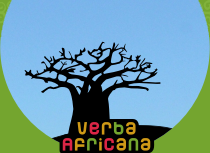The contemporary scene of Zanzibari traditional taarab
The taarab asilia groups in Zanzibar, Akhwan Safaa, Culture Musical Club and Bi Kidude, are putting their faith in the growing interest in ‘exotic’ traditions in western societies, striving to get ahead in an often discouraging economic context. Since the 1990s, the economic crisis and the spread of a mentality of liberalization within the Establishment have led to reduced funding on the one hand and to the encouragement of private initiative in taarab activities on the other. Previously, their activities were supported by the leadership, who favoured this genre of sung poetry as a vehicle for political communication. Today the government only sponsors a small and poorly equipped group, Sanaa ya Taarab, led by the famous singer Fatma Issa.
The Zanzibari taarab asilia clubs have thus been forced to search for their own financial resources and to manage their own economic affairs. They cleverly exploit the charm of historical continuity and tradition, expanding their activities beyond the usual domains of taarab performances (weddings, religious and political celebrations) into different areas: the tourist entertainment market, which at present represents a very important source of immediate economic benefit for taarab groups, as well as the network of global music. Traditional taarab artists often go on foreign tours to Europe and the Middle East, and they participate in cultural events that are attended by western cultural operators, such as the annual Festival of the Dhow Countries, a musical manifestation which forms part of the Zanzibar International Film Festival (ZIFF). They are also involved in international projects, such as the opening of the Dhow Countries Musical Academy in Zanzibar, and so gain a great deal of exposure on the Internet where it is possible to find documentation about these groups and artists. And all of them have made high-quality recordings that were produced by western production houses like Globestyle or Retroafric.

